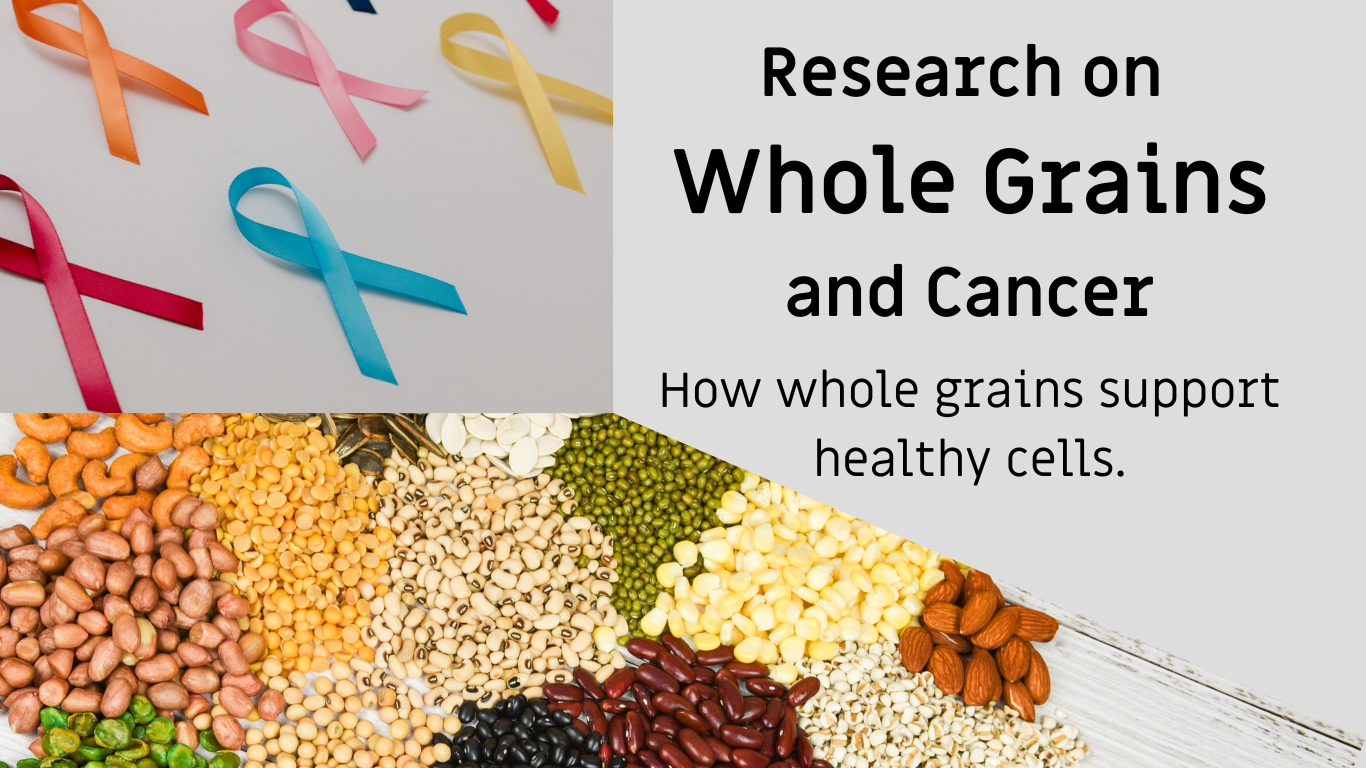
Research suggests that whole grains are beneficial in cancer prevention, particularly for colorectal cancer, but also potentially for other types. Here are some key findings:
Colorectal Cancer
- Dietary Fiber: High intake of dietary fiber from whole grains is linked to a reduced risk of colorectal cancer. Fiber aids in maintaining healthy bowel movements and produces short-chain fatty acids like butyrate, which have anti-inflammatory and anti-cancer properties (AICR) (BMJ).
- Systematic Reviews: Meta-analyses and systematic reviews consistently show that consuming whole grains lowers the risk of colorectal cancer. One meta-analysis found that three servings of whole grains per day reduced the risk by 17% (AICR) (MDPI) (BioMed Central).
Other Types of Cancer
- Digestive Tract Cancers: Whole grains are associated with a reduced risk of cancers in the digestive tract, including esophageal, gastric, and pancreatic cancers. Studies show a 22% reduction in overall digestive tract cancer risk with high whole grain consumption (BioMed Central).
- Breast and Prostate Cancer: Emerging evidence suggests that whole grains may also reduce the risk of breast and prostate cancers. The nutrients and phytochemicals in whole grains, such as lignans and phenolic acids, contribute to these protective effects (Cancer Center for Healing).
Mechanisms of Action
- Antioxidants and Phytochemicals: Whole grains contain antioxidants, phenolic acids, and other bioactive compounds that protect cells from oxidative damage, reduce inflammation, and improve insulin sensitivity (AICR) (Cancer Center for Healing).
- Weight Management: Maintaining a healthy weight is crucial for cancer prevention. Whole grains help with weight management by promoting satiety and reducing calorie intake (MDPI).
Conclusion
Incorporating whole grains into your diet is a practical and effective way to reduce the risk of various cancers. The high fiber content, rich nutrient profile, and anti-inflammatory properties of whole grains contribute to their protective effects.
For more detailed information, you can check out these sources:
- AICR on Whole Grains and Cancer Prevention
- MDPI Systematic Review on Whole Grains and Cancer
- BMJ Systematic Review and Meta-Analysis
- Nutrition Journal Meta-Analysis
- Cancer Center for Healing Guide
Related Articles:
Join our Online Community
Ready to ditch recipes and learn more about baking with fresh milled flour using methods and your imagination? Join my Fresh milled Flour Methods group. You can ask questions, share your wins, and more with an expectation of honesty and friendly interaction. I hear it’s the best place to be on Facebook.
